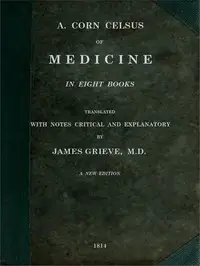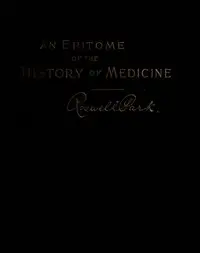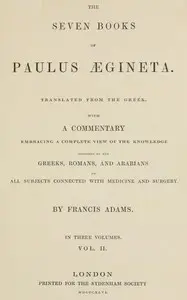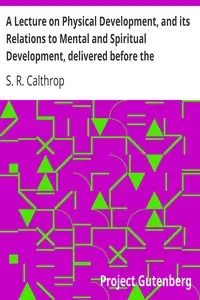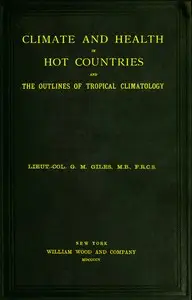"The Genuine Works of Hippocrates, Vol. 1 (of 2)" translated by Francis Adams, presents the translated writings from one of history's pivotal figures in medicine. It offers a journey into the foundations of medical science through the work attributed to Hippocrates. Adams sets the stage with discussions about the nature of ancient Greek medicine and the issues in converting old manuscripts so modern readers can understand them. The translation, supported by annotations, seeks to make accessible and provide context to Hippocrates's often difficult-to-interpret ideas, promising to clarify historical medical methods and trace the evolution of medical philosophy. The discourse emphasizes a detailed exploration of Hippocratic texts to examine medical literature.
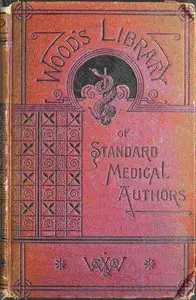
The genuine works of Hippocrates, Vol. 1 (of 2) : $b Translated from the Greek, with a preliminary discourse and annotations
By Hippocrates
Venture back in time to uncover the original thoughts that formed the basis of healthcare as we know it today.
Summary
About the AuthorHippocrates of Kos, also known as Hippocrates II, was a Greek physician and philosopher of the classical period who is considered one of the most outstanding figures in the history of medicine. He is traditionally referred to as the "Father of Medicine" in recognition of his lasting contributions to the field, such as the use of prognosis and clinical observation, the systematic categorization of diseases, and the formulation of humoral theory. The Hippocratic school of medicine revolutionized ancient Greek medicine, establishing it as a discipline distinct from other fields with which it had traditionally been associated, thus establishing medicine as a profession.
Hippocrates of Kos, also known as Hippocrates II, was a Greek physician and philosopher of the classical period who is considered one of the most outstanding figures in the history of medicine. He is traditionally referred to as the "Father of Medicine" in recognition of his lasting contributions to the field, such as the use of prognosis and clinical observation, the systematic categorization of diseases, and the formulation of humoral theory. The Hippocratic school of medicine revolutionized ancient Greek medicine, establishing it as a discipline distinct from other fields with which it had traditionally been associated, thus establishing medicine as a profession.



